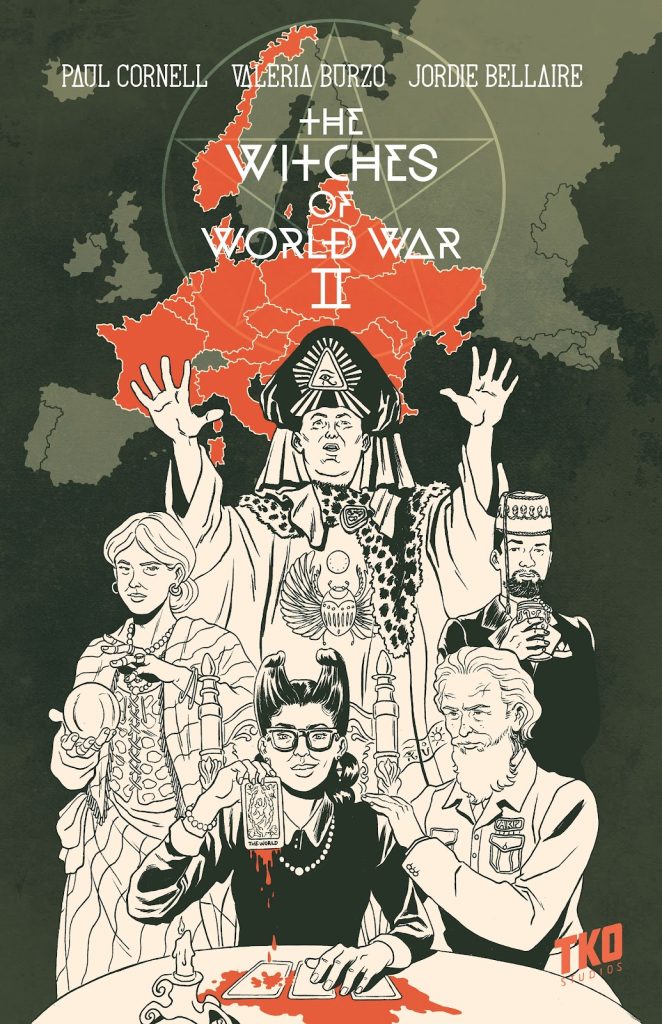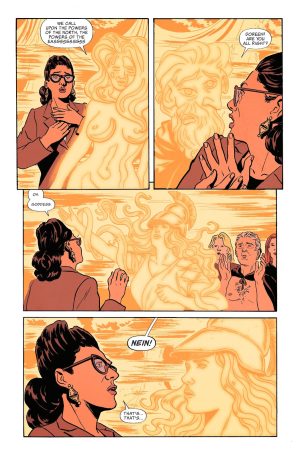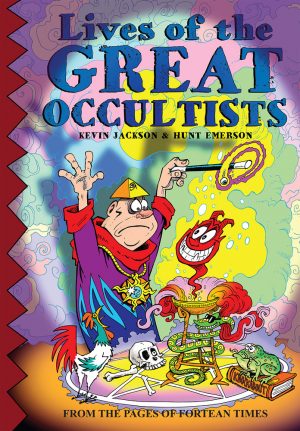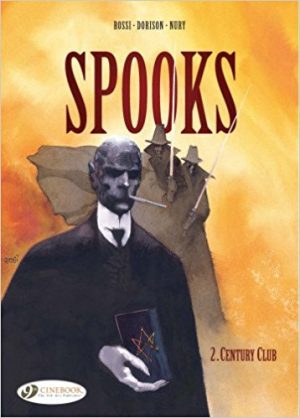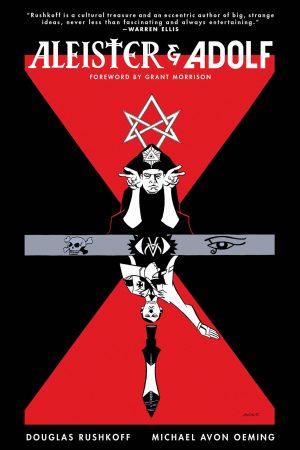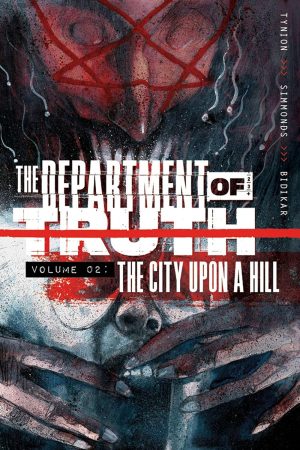Review by Ian Keogh
Whatever his general malign reputation, the balance of informed opinion is that Aleister Crowley helped British forces during World War II, and he’s adopted by Paul Cornell as the starting point for his tale of occult influence in the 1940s.
Despite Crowley being the recognisable presence, the remainder of the cast are also notable figures from the UK’s occult scene of the 1940s and 1950s, introduced via Doreen Diminy. She’s nineteen and a secretary in the UK’s wartime codebreaking facility with an encyclopedic interest in folklore, tasked with recruiting a disparate group of strong personalities all with an interest in the occult. The intention is to combat and frustrate the Nazi obsession with magical objects. A protracted introduction with detours occupies the first third of the story. It’s eye-opening for Doreen, and ensures the cast and their peculiarities are known when the shit hits the fan. However, Cornell also cleverly sows doubt as to true allegiances.
Whether Cornell or Valeria Burzo is responsible for Doreen’s eccentric and constantly distracting hairstyle is unknown, but the occasionally posed person aside, this is technically one extremely well drawn graphic novel. Burzo’s delicate line applied to people or scenery results in memorable pages, but they’re not the most atmospheric for a story featuring the supernatural, although Cornell’s very coy about that. How much of what’s presented as possibly supernatural is mere trickery? Crowley is very adept at presentation, but the curtain is occasionally drawn back.
The characterisation is strong, but The Witches of World War II isn’t as compelling as it might be because Cornell misjudges the pacing. There’s too much set-up and not enough pay-off, and additionally too many similar scenes when it comes to whether or not Crowley can be trusted. It’s a shame as Cornell leads to a creative ending explaining one of World War II’s greatest mysteries, and there are both touching and horrifying scenes. The gold standard for mixing Nazis and the supernatural is Mike Mignola’s assorted projects, and this can’t match them for atmosphere.
